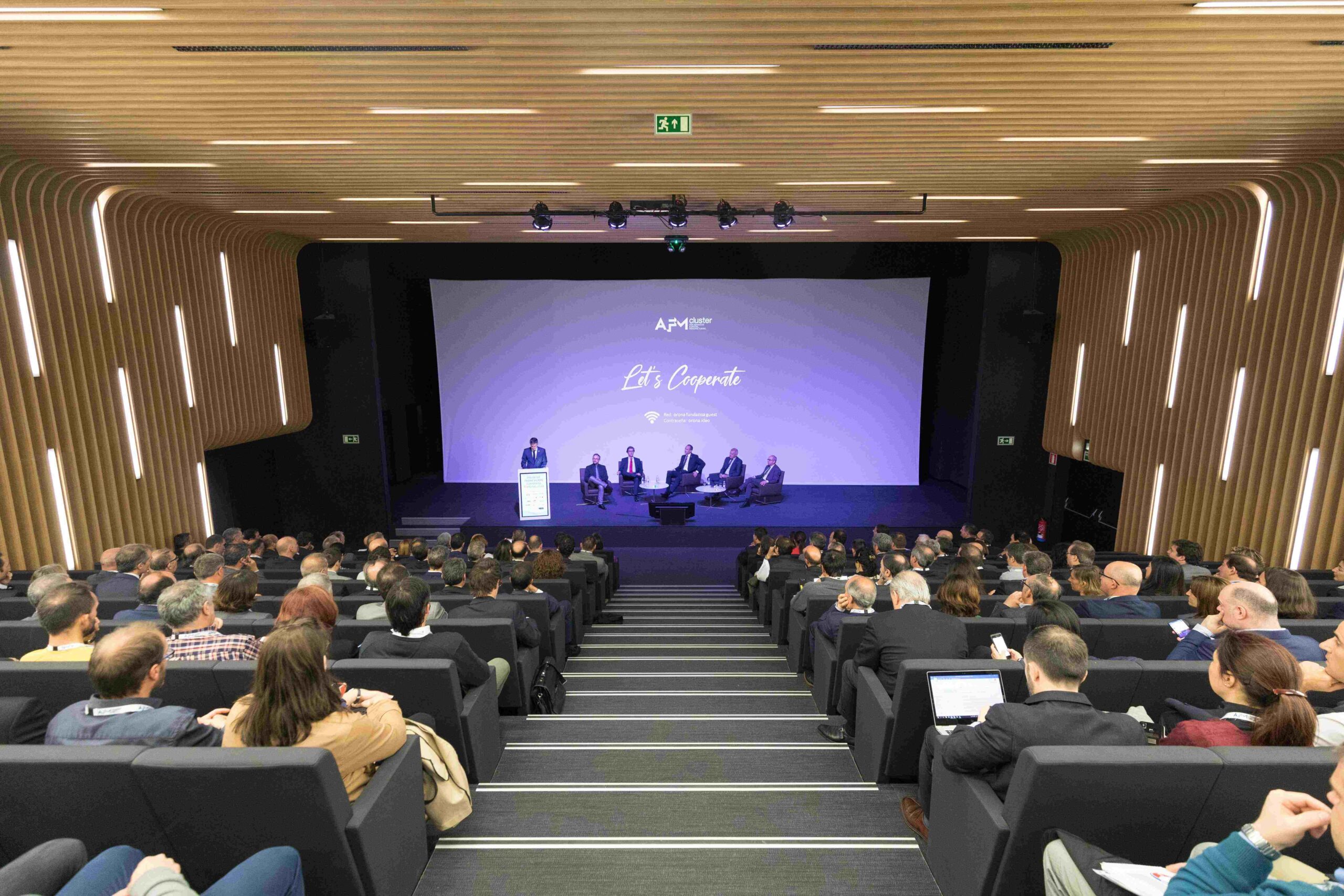ADDIMAT, an ideal partner for the BDIH
In the articles published to date, the SPRI Group, together with the BDIH, has presented the different nodes that make up the group, explaining their areas of action and highlighting the benefits that these can bring to the Basque industry through the implementation and use of 4.0 technologies. This article presents another agent whose role is essential for the development of the additive manufacturing technology ecosystem, being at the same time a perfect complement to the work carried out by the BDIH: ADDIMAT.
ADDIMAT, the Spanish Association of Additive and 3D Manufacturing Technologies, was founded in 2014 with the aim of bringing together all the actors with interests in the development and promotion of additive and 3D manufacturing, and it currently has 92 members. As we have emphasized on the series of articles corresponding to the BDIH’s Additive Manufacturing node, these new technologies in full progress will undoubtedly be key in the development of new products and production processes, and that is why the role of an association that represents the companies operating in this sector, is essential.
ADDIMAT’s management is supported by the professional team of AFM Cluster, a multi-sector association with an experience of more than 70 years, and a team of people specialized in advanced and digital manufacturing technologies, covering the areas of internationalisation, technology, communication and people, and whose headquarters are located in its facilities in the Science and Technology Park of Gipuzkoa.
ADDIMAT brings together all the agents that make up the additive value chain: manufacturers of 3D printing equipment and their consumables, suppliers of 3D printing services, users of 3D printing technology for own production, etc., and aims to promote and drive the implementation of additive technologies.
About its relationship with the BDIH, ADDIMAT plays an important role in the Additive Manufacturing node, complementing its functions. While the activities of the latter are focused on offering testing and experimentation services to industry and specialized training, ADDIMAT is in charge of the management, development and acceleration of the additive manufacturing ecosystem, its main functions being:
- To transfer the voice of the companies to the institutions and other collaborating entities that can contribute to the development of the sector.
- To give coherence and cohesion to the sector, adding messages and thus contributing to building a powerful and innovative image of the sector and the companies that make it up.
- To transfer to the industry the advantages that additive manufacturing technologies can bring to them, and to facilitate contact between companies.
- To promote the technological development of the sector.
- To adapt the training offer to the needs of the additive sector.
To give some specific examples, ADDIMAT was the driving force behind the ADDIT3D fair, a reference meeting for additive manufacturing in Spain. Currently, ADDIMAT is working on identifying success stories of the use of additive manufacturing technologies in different sectors and disseminating this knowledge online through its website. The webinars available on its YouTube channel are also having great success.
In summary, the dissemination, networking and visibility activities carried out by ADDIMAT are essential for the development of an ecosystem that channels its testing and experimentation actions towards the BDIH’s Additive Manufacturing node. And in the same way, companies that begin their journey testing these technologies through the BDIH node, have in ADDIMAT an association that provides all the services necessary to enable the conditions in which their businesses will prosper.
Among the organisations associated with this association, there can be mentioned technology centres and training centres with knowledge and experience in the field of additive manufacturing or 3D printing at a national and regional level, some of the latter also being members of the BDIH, such as LORTEK, CEIT, GAIKER, IDEKO, IMH, MU, UPV/EHU, TECNALIA, CIDETEC, TKNIKA or TEKNIKER, which demonstrates the high degree of linkage, cooperation and communication that exists in the Basque innovation ecosystem. It should be noted that the IMH is the education centre of the AFM Cluster.
To find out more about the benefits and services that ADDIMAT or any of its associated companies can offer, you can contact them through any of their multiple communication channels, such as by subscribing to their newsletter, which keeps you up to date with the latest news in the sector.
Related news
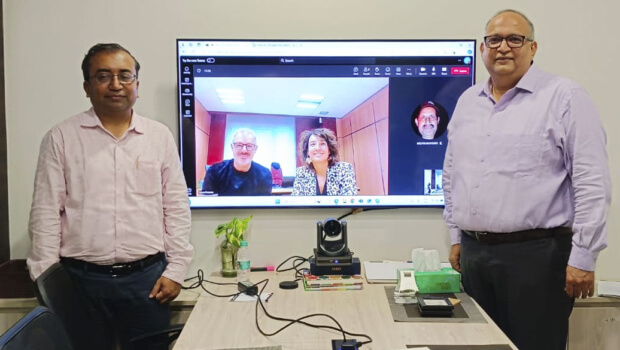
SMARTPM and SubAero Precision Machining announce strategic partnership in India
The collaboration between SMARTPM and SubAero Precision Machining (Group Designcell) is a big step in our global growth, helping us establish a strong foundation in one of the world's fastest-growing industrial markets
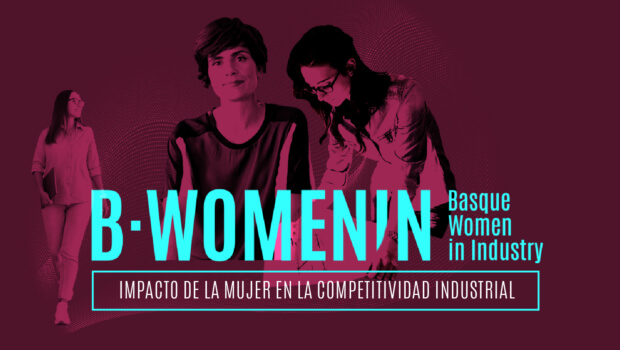
Companies with greater gender equality perform better in terms of innovation and are more competitive
The study of the SPRI initiative "Women in Industry" shows that gender equality has an impact on the improvement of company results.
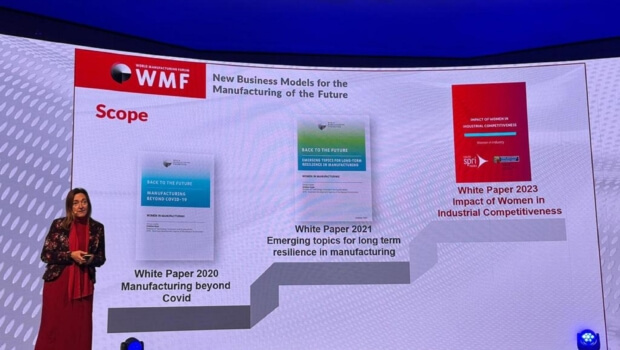
SPRI presents the results of the study on the impact of women on industrial competitiveness at the World Manufacturing Forum
The reports is the continuation of the work carried out by the SPRI Group and the Foreign Network office in Milan since 2020 as leader of the Women in Manufacturing expert group.
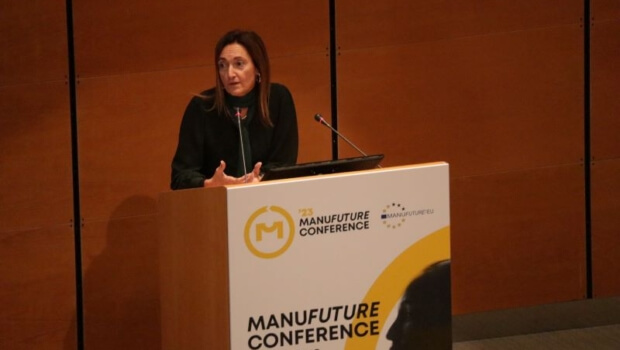
Europako fabrikazio-ikerketaren etorkizuna
Donostian, egunotan, MANUFUTURE Conference 2023 egiten ari da, hau da, fabrikazio-industriaren etorkizunari buruzko Europako konferentzia.
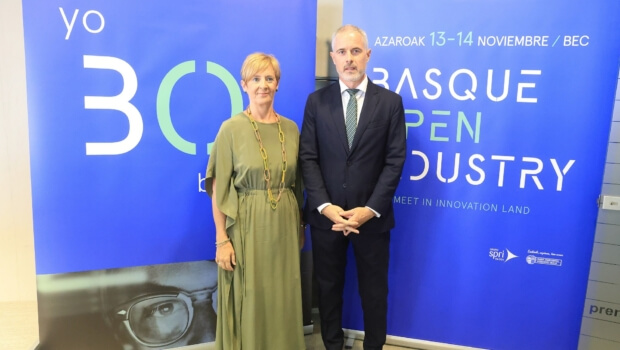
Basque Open Industry will show Europe its industrial and technological ecosystem at the European SME Week (SME Week) from 13 to 17 November.
Talent, internationalisation, energy-environmental and technology-digital transitions. SME Week 2023. Exhibition and stands at the BEC: “Rebuild Ukraine”.

